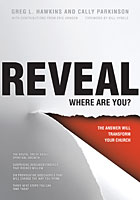 Just before I left my office a couple of weeks ago for Italy, our Director of Women's Ministries came running into my office with a book. "You have to read this on your trip," she said, "and tell me if it's really true."
Just before I left my office a couple of weeks ago for Italy, our Director of Women's Ministries came running into my office with a book. "You have to read this on your trip," she said, "and tell me if it's really true."If you haven't heard of Sarah Cunningham yet, my guess is that you will be hearing a lot more about her in the future. She grew up a preacher's kid in what sounds like a pretty typical denominational church like the one many of us who grew up in church called "home." She went to a standard Bible college, and even took a job at a rapidly growing evangelical church, before becoming completely disillusioned with the church.
In Dear Church, Cunningham writes a series of letters to the church on behalf of twenty-somethings everywhere.
As a twenty-something who works with twenty-somethings, you have to know that I was pretty skeptical coming into this book. Ninety-nine times out of a hundred, when someone volunteers to speak on my behalf, I end up wishing they hadn't. It must be the postmodern me who hates being stuffed in or described by someone's box.
But Sarah Cunningham has me and most of my friends pegged. She describes our mindset, worldview, and ultimately our disillusionment with our parents' church with great care and precision. Yet, unlike the vast majority of her peers, she does not prescribe that we heave the local church out with the bathwater.
I get really frustrated with the gagillion teeny-bopper authors I've read who gripe about the fact that the local church doesn't accommodate all ages (like twenty-somethings). It doesn't allow all races, genders, and demographics to respond to God in a way that fits the tendencies of their culture. It doesn't allow for expression of creativity and thought outside the box. And then, those teeny-bopper authors recommend we leave the church in droves and start our own churches (which will create an environment that isn't age, race, gender, or demographically diverse).
Cunningham doesn't recommend that. She doesn't recommend the church walk away from doctrine, or tradition, or any of the things that might get your fundamentalist-leaning underwear in a bunch. But she provides a realistic look at what leaders (and participants) in the local church should expect from the younger adults in the church. If you were to decide to minister in Laos, you would study the culture and learn the language before you ever hoped to serve there. This book will help you do the same thing for a new culture of Christians who are growing up around the corner from your house.
What happens instead, is that churches conduct discussions around conference room tables where middle-aged or older adults discuss "what young people want." Those conversations almost always miss the mark of what young people actually want. We don't want the church to look like the culture. But we also don't want it to be completely detached from reality... in either direction.
Here are a few examples of some of Cunningham's wisdom:
- "We don't want to feel like we worship on an American Idol set... we are seeking the actual God - the one who created the entire universe from dust - and we don't think that he has to wait on the next MTV fad or Microsoft update to deliver fresh spiritual experiences."
- Perhaps the greatest reason twentysomethings don't want to be labeled is that we don't want to be known for who we are now. We want to be known for who we are striving to be. For who we are becoming.
- We value theological questions... [but] we twentysomething Christians can't focus too much energy on analyzing intricate church doctrines because, quite honestly, our peers aren't even close enough to the church to know what the doctrines in question are. Unlike some previous generations, our peers are not delaying their salvation based on unresolved questions about Creationism.
- Twentysomethings like technology, but we prefer human contact. You know what gets our attention? Put real-life humans in front of us and have them tell us about their real lives.
Pick up this book and read it. Be skeptical of it if you want, but read it. It will take you about 2 hours, but you will be glad you did. And report back to me... I'd love to hear your thoughts.






